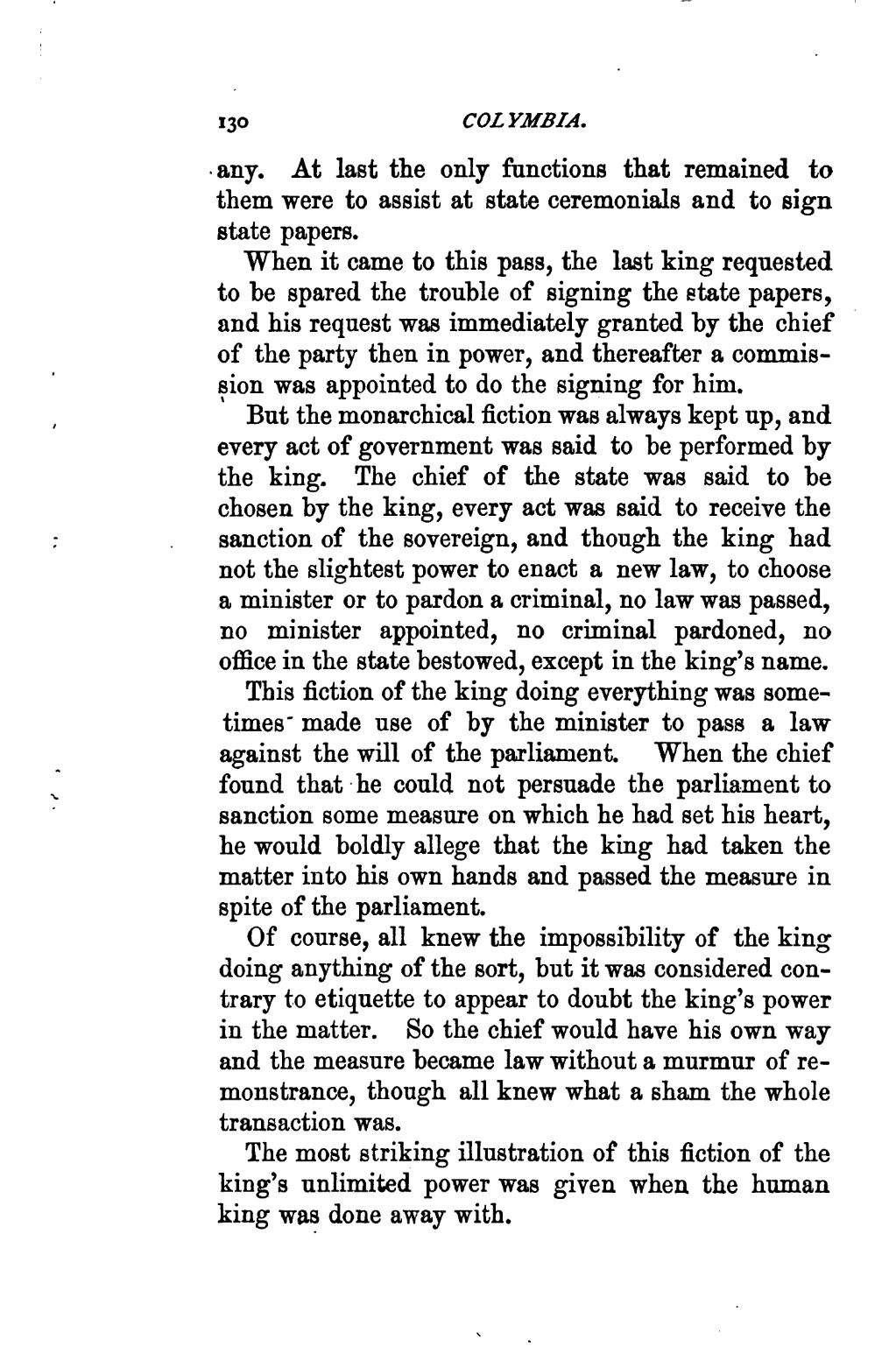any. At last the only functions that remained to them were to assist at state ceremonials and to sign state papers.
When it came to this pass, the last king requested to be spared the trouble of signing the state papers, and his request was immediately granted by the chief of the party then in power, and thereafter a commission was appointed to do the signing for him.
But the monarchical fiction was always kept up, and every act of government was said to be performed by the king. The chief of the state was said to be chosen by the king, every act was said to receive the sanction of the sovereign, and though the king had not the slightest power to enact a new law, to choose a minister or to pardon a criminal, no law was passed, no minister appointed, no criminal pardoned, no office in the state bestowed, except in the king's name.
This fiction of the king doing everything was sometimes' made use of by the minister to pass a law against the will of the parliament. When the chief found that he could not persuade the parliament to sanction some measure on which he had set his heart, he would boldly allege that the king had taken the matter into his own hands and passed the measure in spite of the parliament.
Of course, all knew the impossibility of the king doing anything of the sort, but it was considered contrary to etiquette to appear to doubt the king's power in the matter. So the chief would have his own way and the measure became law without a murmur of remonstrance, though all knew what a sham the whole transaction was.
The most striking illustration of this fiction of the king's unlimited power was given when the human king was done away with.
